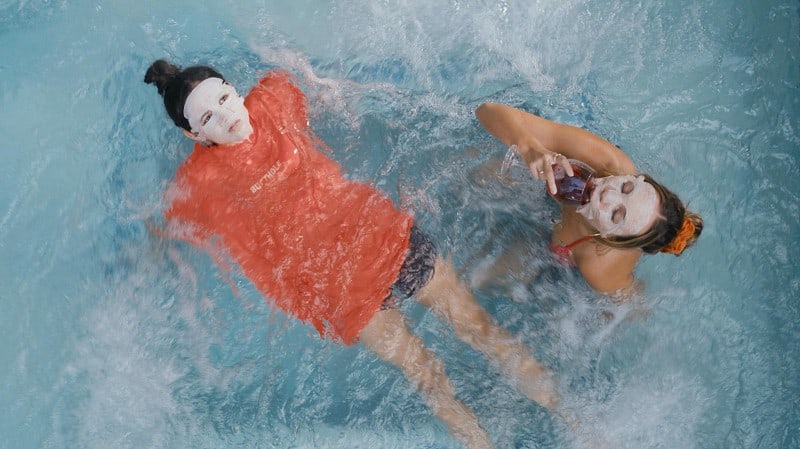‘The Fallout’ is an Ode to a Paralyzed Generation
In Megan Park’s feature directorial debut, trauma is just a part of daily life.

TikTok dances. Elaborate orders at Starbucks. Violent, traumatizing school-shootings. These are just a few examples of things that are a part of everyday life for Gen Z. Megan Park’s patient and profoundly compassionate directorial debut, The Fallout, focuses on this generation, whose day-to-day lives inherently inhabit trauma.
The film follows a teenager named Vada (Jenna Ortega) over the course of a day that changes her life forever. It begins with Vada and her best friend, Nick (Will Ropp), pulling up to their school parking lot blasting music. Vada then sits in class and waits for the bell to ring, surrounded by a gaggle of disinterested students. It’s as normal a day as they come. Until it’s not.
Vada’s life quickly descends into a hellish spectacle when a school shooter decides to terrorize their quiet hallways. She and Instagram-hottie popular girl Mia (Maddie Ziegler) are forced to seek shelter in a bathroom stall while the killer claims lives just outside the door.
Though this event undoubtedly shakes and shatters the worlds of these two high schoolers, grieving in such magnitude is a simple part of their vocabulary. In this sense, The Fallout borrows from a certain precursor: Gus Van Sant’s Columbine massacre-inspired film Elephant.
What was so revolutionary about that 2003 drama isn’t that it was one of the first films to tackle the sinister subject matter of school shootings but rather the way it told that story. Elephant examines an ordinary day in the life of a group of high schoolers. The only thing different about that day is that a shooter comes into the school and claims the lives of many students. Given the simple, straightforward way the events unfold in the film, it just feels like another part of the teens’ routine life.
The Fallout tackles its material with a similar, almost unperturbed tone. And that’s not to say that the characters don’t care about the emotional fallout they’ve endured; they care a great deal. It’s more to do with them not being particularly surprised that it happened. When Vada wakes up drenched in sweat from another nightmare, it almost seems like it’s just another part of her normal.
When Vada returns home after that fateful day, her family members no longer know how to communicate with her. Quintessential helicopter mom Patricia (Julie Bowen) physically winces at her daughter’s every move, while Vada’s quiet father, Carlos (John Ortiz), retreats in restrained hopelessness. Vada’s younger sister Amelia, on the other hand, aggressively probes her and causes her to recoil more aggressively.
This disconnect only makes sense, as Vada is sandwiched between two generations who cannot quite comprehend her own generation’s pain. Growing up in a world where fatal school shootings are guaranteed to happen a number of times a year is painful. But when someone enters through those doors wielding a machine gun, it’s hardly surprising. So, while her parents wait for things to go back to normal, Vada doesn’t think about it in those terms. She knows they never really will.
The only people Vada can now find common ground with are those her own age: others who have also been desensitized to this cruel reality. Stifled by her family’s unusual behavior, she begins spending all of her time with Mia. Their friendship is somewhat alien; the two feel perpetually mismatched. But for Mia, a school shooting always felt like a tangible possibility bubbling under the surface, just waiting to erupt. So, she and Vada can move on with their lives with this shared understanding.
Because of this understanding, which is conveyed in subtle and stoic yet sensitive and vulnerable performances by Ortega and Ziegler, The Fallout is the best representation of Gen Z since Bo Burnham’s Eighth Grade. The 2018 film doesn’t shy away from the ugly, cringe-inducing realities of suffering through the torments of middle school while having social media follow your every move like a dark cloud. Nothing like a school shooting happens in Eighth Grade, but characters are always primed for the worst.
The Fallout deals with all of the simple nuances of being a teen today, and it deals with a catastrophic event. For Gen Z, the two aren’t mutually exclusive. Navigating traumatic events is just what it means to be in the throes of growing up.
